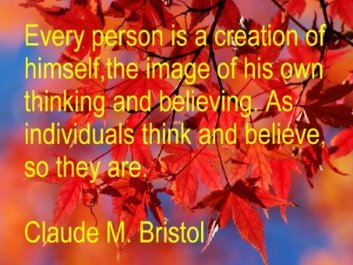Accidental Creativity
One day a man lay in the middle of the street, his ear to the pavement. A passerby stopped, leaned closed and listens as the man reported: "Red Toyota, mag wheels, young driver and two doors I think. License Plate TRU-647.”
Impressed, the passerby said, "Wow! You can tell that just by listening to the pavement?" The man on the street replied, "Not really. But that's the description of the car that just ran me down."
He’s not a genius but just a victim of an accident.
Do you know that in the field of business, not all accidents are bad? In fact, many turned out to be a great blessing in the long run.
Consider this story told by Guy Kawasaki in his latest book entitled, “Rules for Revolutionaries.”
Kawasaki has given a term to the discovery of products by accidents. He calls it “Entre-manure.” “Entre-Manure,“ says Kawasaki, “is the result of an entrepreneur stumbling into an unintended consequence (for example-manure) that is more valuable than what he was originally looking for.
Take Teflon, for example. Most of us think of it as the nonstick coating for pots and pans, but the DuPont scientist who discovered it in 1938 was hardly looking to improve life in the kitchen.
The scientist was Roy Plunkett. He was working on a project to create a new type of Freon -- a chemical used as a refrigerant-that would not infringe on another company's patent. He did not intend to create a new compound for pots and pans.
When Plunkett discovered this new material, he did the right thing: He remained curious about the results and conducted more chemical tests on it. He didn't ignore what happened because it wasn't what he wanted. When he couldn't get
any of the basic reagents to react with this mystery material, he concluded that his process caused polymerization (which means many simple molecules of one type combining one long chain).
He sent some of the material to DuPont's Central Research Department, where they noticed how slick and chemically inert the new material was. The outbreak of World War II and the project to build an atomic bomb pushed Plunkett's discovery into service. It was used in the manufacturing process of the radioactive isotope of uranium and also molded into nose cones for proximity bombs. More than a decade after the end of the war, DuPont was able to manufacture Teflon cheaply enough for use in consumer goods.
The discovery and use of Teflon teaches three lessons:
- Be curious about unintended findings.
- Establish a company atmosphere that encourages seemingly unapplied research and discovery.
- Stick with a discovery and it may yield important commercial products.1
In the garment industry where every product is just as good as the previous hit, I have to keep coming up with new ideas and new designs in order to survive. I see a product, I put it on the drawing boards, source for the right fabric, formulate the right kind of washing and felt sure that it will sell but does not. It’s frustrating at first but I’ve already learned my lesson; to continue to press on while keeping a watchful eye for accidents.
Something went wrong with the fabric, or the formula for washing wasn’t right and then we’ll discover that the accidental product carries potential and then becomes a big hit. Same thing with advertising. The layouts were superbly done. The photographer and the model understood each other. Then we take a lot of random shots and guess what happened? All those accidental photos turn out to be better than the pre-planned ones. So accidents are really blessings under cover.
This leads me to a confession. Every time I set my eyes and heart out to do something but what happens turn out to be something else, instead of fretting and whining and groaning about it, I say a quick prayer. I remember what Paul said in the Book of Romans, “And we know that God causes everything to work together for the good of those who love God and are called according to his purpose for them.”
So why complain? Simply trust.
Source:Francis Kong














